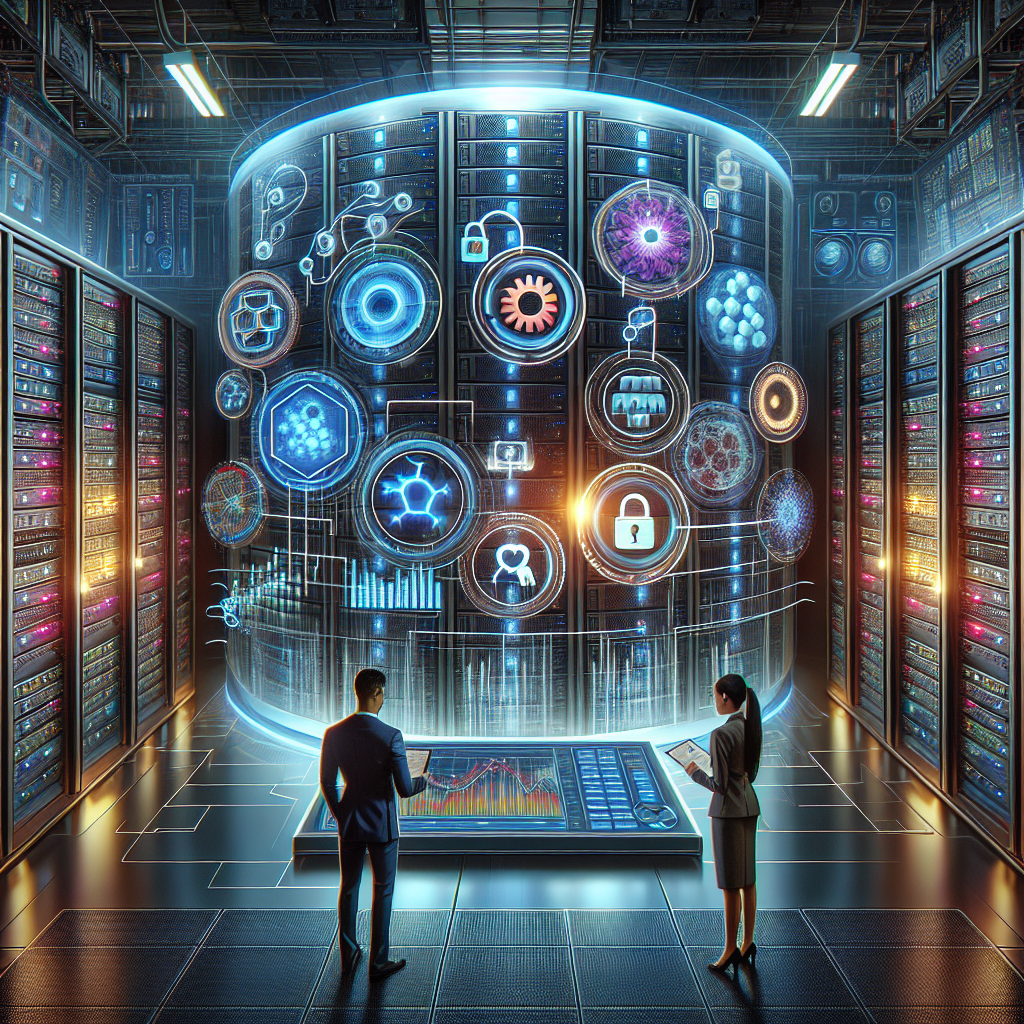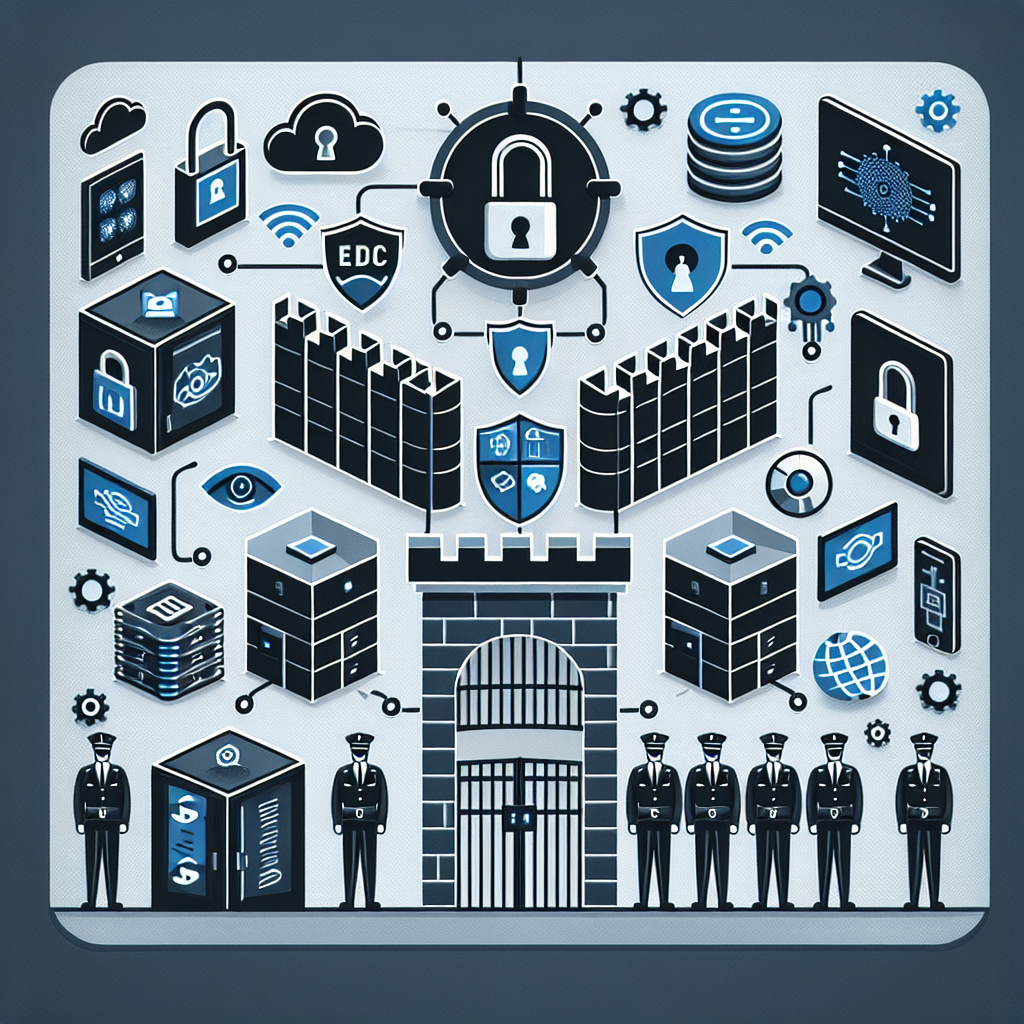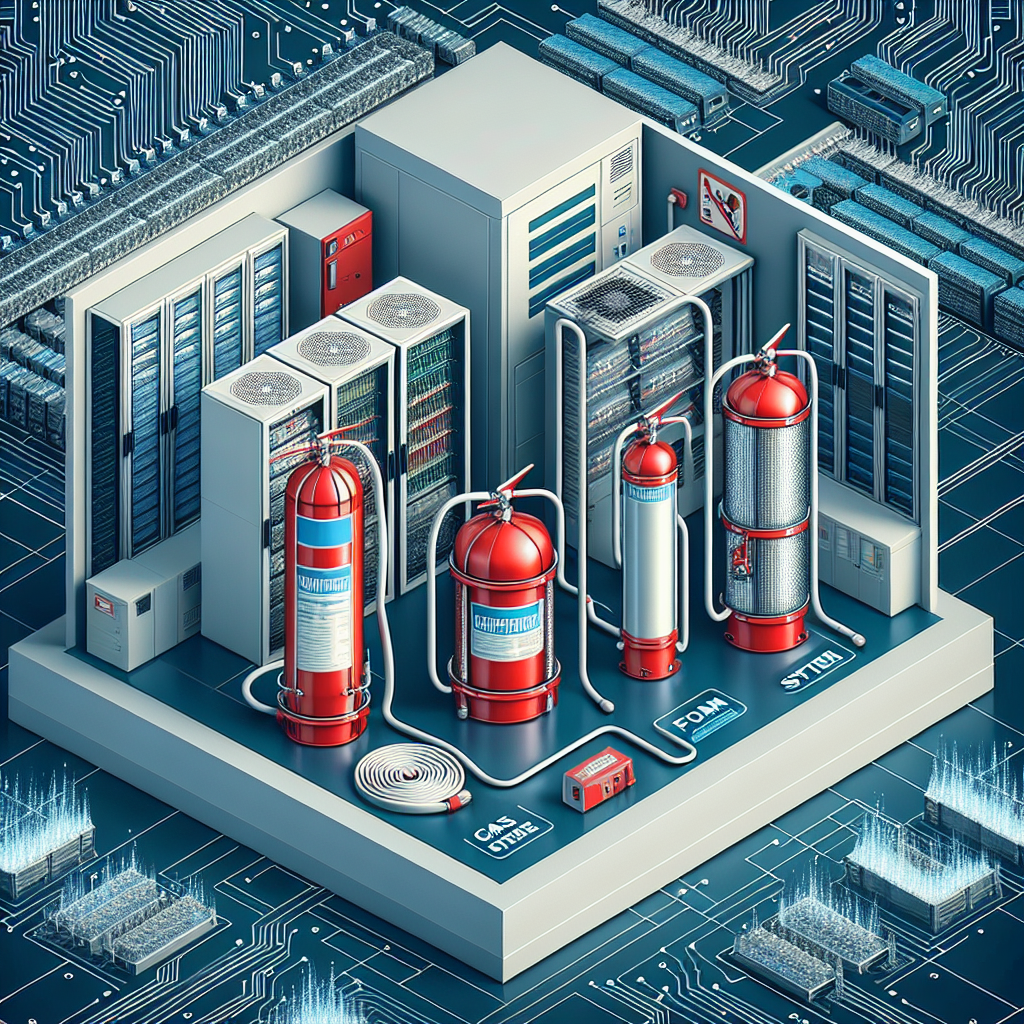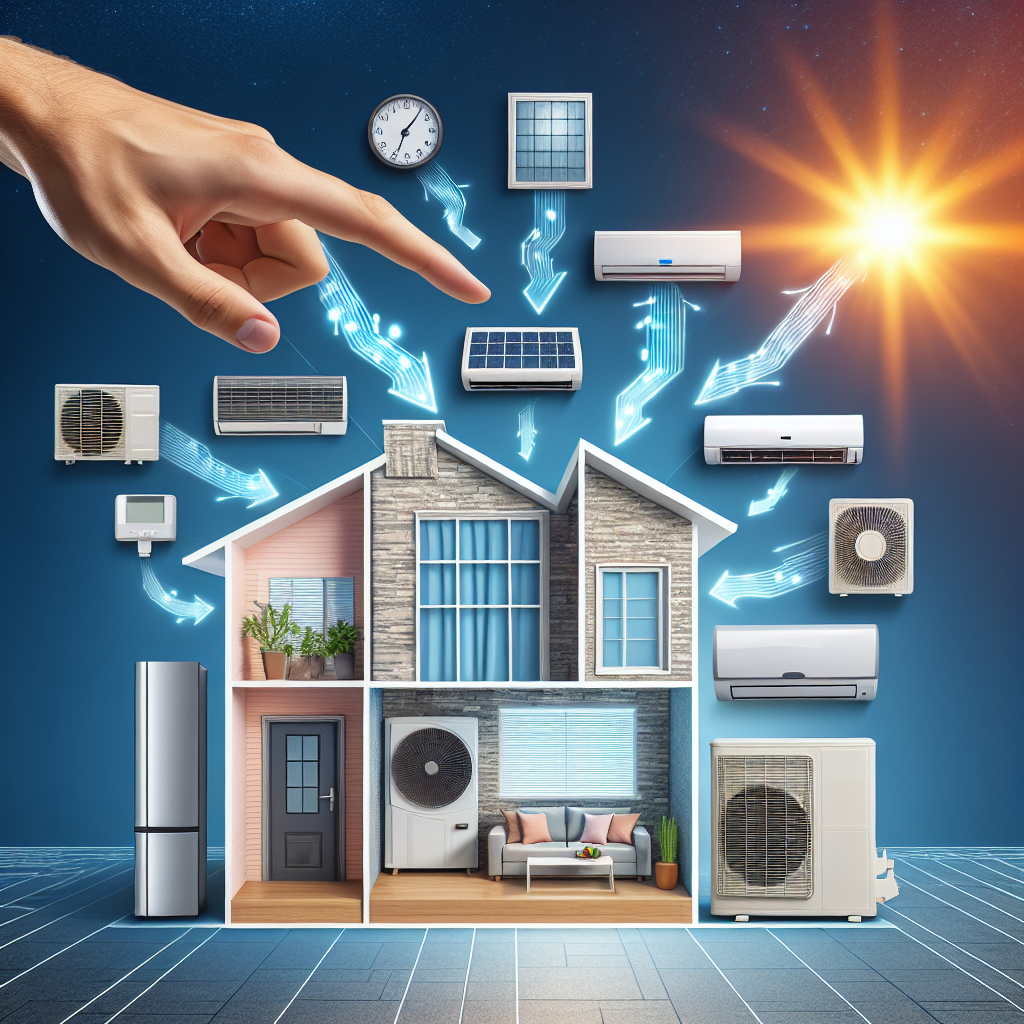Your cart is currently empty!
Tag: System

Choosing the Right Data Center Security System for Your Business
In today’s digital age, data security is of utmost importance for businesses of all sizes. With the increasing number of cyber threats and data breaches, it is crucial for companies to invest in a robust data center security system to protect their sensitive information. Choosing the right data center security system for your business can be a daunting task, but with the right guidance, you can ensure that your data is safe and secure.When selecting a data center security system, there are several factors to consider. First and foremost, you need to assess the level of security required for your business. This will depend on the type of data you store, the industry regulations you need to comply with, and the potential risks your business faces. For example, a financial institution will require a higher level of security compared to a small retail business.
Next, you need to consider the physical security measures of the data center. This includes access control systems, surveillance cameras, and security guards. Access control systems such as biometric scanners, key cards, and PIN codes can help prevent unauthorized access to the data center. Surveillance cameras can monitor the premises 24/7, while security guards can provide an extra layer of protection.
In addition to physical security measures, you also need to consider cybersecurity measures. This includes firewalls, encryption, intrusion detection systems, and antivirus software. Firewalls can prevent unauthorized access to your network, while encryption can protect your data from being intercepted during transmission. Intrusion detection systems can monitor network traffic for suspicious activity, while antivirus software can detect and remove malware.
Another important factor to consider when choosing a data center security system is scalability. As your business grows, your security needs may change. It is important to select a security system that can easily scale to accommodate your growing business without compromising on security.
Lastly, you need to consider the cost of the data center security system. While it is important to invest in a robust security system, you also need to consider your budget. Look for a system that offers the best value for money and meets your security requirements.
In conclusion, choosing the right data center security system for your business is essential to protect your sensitive information from cyber threats. By assessing your security needs, considering physical and cybersecurity measures, ensuring scalability, and considering cost, you can select a security system that meets your business requirements and keeps your data safe and secure.

Key Components of an Effective Data Center Security System
Data centers are essential for storing and processing large amounts of data for businesses and organizations. However, with the rise of cyber threats and data breaches, it is crucial to have a robust security system in place to protect sensitive information. An effective data center security system should have key components that work together to ensure the safety and integrity of the data stored within the facility.Physical Security Measures:
One of the first lines of defense in a data center security system is physical security measures. This includes access control systems such as biometric scanners, key cards, and security guards to prevent unauthorized access to the facility. Surveillance cameras and monitoring systems should also be in place to track and record any suspicious activity.
Fire Detection and Suppression Systems:
Data centers house a large amount of electronic equipment that can be susceptible to fires. Therefore, fire detection and suppression systems are essential components of a data center security system. These systems can include smoke detectors, fire alarms, and automatic fire suppression systems such as sprinklers or gas-based suppression systems.
Network Security:
In addition to physical security measures, data centers also need robust network security to protect against cyber threats. This includes firewalls, intrusion detection systems, and encryption protocols to prevent unauthorized access to the network and data. Regular security audits and penetration testing can help identify and patch any vulnerabilities in the system.
Environmental Controls:
Data centers require strict environmental controls to maintain optimal conditions for the electronic equipment housed within. This includes temperature and humidity control systems to prevent overheating and corrosion of the equipment. Backup power systems such as generators and uninterruptible power supplies (UPS) are also crucial to ensure continuous operation in the event of a power outage.
Data Encryption:
Data encryption is another important component of an effective data center security system. Encryption ensures that data is protected both in transit and at rest, making it unreadable to unauthorized users. Strong encryption algorithms and key management systems should be implemented to ensure the security of the data stored within the data center.
Regular Monitoring and Maintenance:
Regular monitoring and maintenance of the security systems are essential to ensure that they are functioning properly and up to date. This includes monitoring security logs, conducting security audits, and updating software and firmware to patch any vulnerabilities. Training employees on security best practices and protocols is also crucial to prevent human error and ensure the overall security of the data center.
In conclusion, an effective data center security system should have key components such as physical security measures, fire detection and suppression systems, network security, environmental controls, data encryption, and regular monitoring and maintenance. By implementing these components, data centers can protect sensitive information and ensure the safety and integrity of the data stored within the facility.

Choosing the Right Fire Suppression System for Your Data Center
Data centers are crucial hubs for storing and processing large amounts of digital information. With the increasing reliance on technology and the growing amount of data being generated, it is more important than ever to protect these facilities from potential disasters, such as fires. Choosing the right fire suppression system for your data center is essential in ensuring the safety of your equipment and the continuity of your operations.There are several factors to consider when selecting a fire suppression system for your data center. One of the key considerations is the type of equipment and materials present in the facility. Data centers typically house a variety of sensitive electronic equipment, such as servers, routers, and storage devices, which can be easily damaged by water-based fire suppression systems. In such cases, clean agent fire suppression systems, such as FM-200 or Novec 1230, are often recommended as they are designed to extinguish fires without causing damage to electronic equipment.
Another important factor to consider is the size and layout of the data center. Larger data centers may require a more complex fire suppression system, such as a pre-action sprinkler system, which combines the benefits of a traditional sprinkler system with the added protection of a water detection system. This system is designed to prevent accidental discharges and minimize water damage in the event of a fire.
Furthermore, it is essential to consider the environmental impact of the fire suppression system. Some fire suppression agents, such as Halon, have been phased out due to their harmful effects on the ozone layer. As a result, many data centers are now opting for more environmentally friendly alternatives, such as clean agent systems or inert gas systems, which are non-toxic and pose no threat to the environment.
Additionally, it is important to ensure that the fire suppression system complies with local fire codes and regulations. Data centers are subject to strict safety standards, and failure to comply with these regulations can result in fines or even closures. It is advisable to consult with a fire protection specialist to determine the best fire suppression system for your data center and ensure that it meets all necessary requirements.
In conclusion, choosing the right fire suppression system for your data center is a critical decision that should not be taken lightly. By considering factors such as the type of equipment, size and layout of the facility, environmental impact, and regulatory compliance, you can select a system that will effectively protect your data center from fires and ensure the safety of your equipment and personnel. Investing in a reliable fire suppression system is essential in safeguarding the continuity of your operations and the integrity of your data.

Choosing the Right Air Conditioning System for Your Home
When it comes to choosing the right air conditioning system for your home, there are a few key factors to consider. With so many options available on the market, it can be overwhelming to decide which system is best suited for your needs. Here are some tips to help you make an informed decision:1. Consider the size of your home: The size of your home plays a crucial role in determining the type and size of air conditioning system you need. A system that is too small will struggle to cool your home efficiently, while a system that is too large will waste energy and increase your utility bills. Make sure to measure the square footage of your home and consult with an HVAC professional to determine the proper size for your air conditioning system.
2. Energy efficiency: Energy efficiency is an important factor to consider when choosing an air conditioning system. Look for systems that have a high SEER (Seasonal Energy Efficiency Ratio) rating, as this indicates how efficiently the system can cool your home. Energy-efficient systems can help you save money on your utility bills and reduce your carbon footprint.
3. Type of system: There are several types of air conditioning systems available, including central air conditioning, ductless mini-split systems, and window units. Central air conditioning systems are the most common choice for larger homes, as they can cool multiple rooms at once. Ductless mini-split systems are a good option for homes without ductwork, while window units are ideal for cooling individual rooms.
4. Maintenance and upkeep: Regular maintenance is essential to keep your air conditioning system running smoothly and efficiently. Make sure to choose a system that is easy to maintain and has readily available replacement parts. Consider investing in a maintenance plan with your HVAC provider to ensure your system is properly cared for.
5. Budget: Last but not least, consider your budget when choosing an air conditioning system for your home. While it may be tempting to opt for the cheapest option, keep in mind that a higher-quality system will likely be more energy-efficient and require less maintenance in the long run. Consider the upfront cost, as well as the long-term savings and benefits of investing in a quality air conditioning system.
In conclusion, choosing the right air conditioning system for your home requires careful consideration of factors such as size, energy efficiency, type of system, maintenance, and budget. By taking the time to research and consult with HVAC professionals, you can ensure that you select a system that will keep your home cool and comfortable for years to come.
The Importance of Regular Server Maintenance: Tips for Keeping Your System Running Smoothly
In today’s digital age, servers play a crucial role in the operation of businesses of all sizes. These powerful machines store and manage data, support communication and collaboration, and allow for the efficient operation of various software applications. With so much riding on the performance of servers, it is essential to prioritize regular maintenance to ensure that they continue to run smoothly and efficiently.Regular server maintenance is vital for several reasons. Firstly, it helps to identify and address potential issues before they escalate into major problems that could disrupt operations and lead to costly downtime. By performing routine checks and updates, IT teams can proactively address issues such as hardware malfunctions, software glitches, and security vulnerabilities.
Secondly, regular server maintenance helps to optimize performance and ensure that systems run at peak efficiency. Over time, servers can become bogged down with unnecessary files, outdated software, and other factors that can slow down operations. By regularly cleaning up and optimizing servers, businesses can ensure that their systems are running smoothly and efficiently, helping to improve productivity and user satisfaction.
In addition to improving performance and preventing downtime, regular server maintenance is also essential for ensuring the security of sensitive data. Servers store a vast amount of valuable information, including customer data, financial records, and intellectual property. Without proper maintenance and security measures in place, servers are vulnerable to cyberattacks and data breaches that could have devastating consequences for businesses.
To keep your server running smoothly and securely, here are some tips for effective maintenance:
1. Regularly update software and firmware: Keep your server’s operating system, applications, and firmware up to date to ensure that you have the latest security patches and performance enhancements.
2. Monitor server performance: Use monitoring tools to track server performance metrics such as CPU usage, memory usage, and disk space. This will help you identify any performance issues early on and take corrective action.
3. Backup data regularly: Implement a robust backup strategy to protect your data in case of hardware failure, cyberattacks, or other disasters. Test your backups regularly to ensure they are working properly.
4. Implement security best practices: Secure your server with firewalls, antivirus software, and intrusion detection systems. Regularly scan for vulnerabilities and apply security patches to protect against cyber threats.
5. Clean up and optimize server resources: Regularly clean up unnecessary files, defragment disks, and optimize server settings to improve performance and efficiency.
By prioritizing regular server maintenance, businesses can ensure that their systems run smoothly, efficiently, and securely. Investing time and resources in maintaining servers can help prevent costly downtime, improve productivity, and protect valuable data. With proper care and attention, servers can continue to support the operations of businesses and contribute to their success in the long term.
